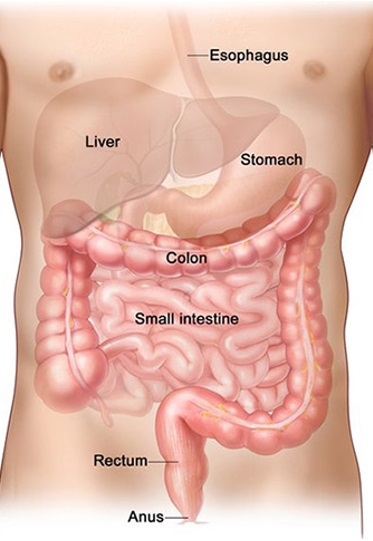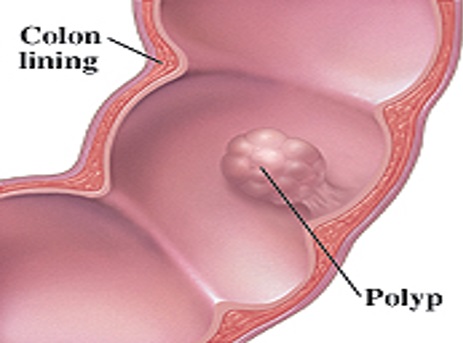Colorectal cancer occurs in the colon or rectum. Colon is the large bowel while rectum is the passageway between the colon and the anus.

Colorectal cancer occurs commonly worldwide. The risk of getting colorectal cancer increase with age. It is commonly found in people age 50 or older. There may be no symptoms in the early stage of colorectal cancer. Colorectal cancer usually starts with polyps (a growth) in the colon or rectum which later turn into cancer. Screening test is important to detect colorectal cancer early. If it is detected early, the chance of getting cured is good.
Who is at high risk of getting colorectal cancer?
- If you or your close relatives have history of colorectal polyps or colorectal cancer
- If you have inflammatory bowel disease such as ‘ulcerative colitis’ or ‘Crohn’s disease’
- If you have genetic syndrome related to cancer such as familial adenomatous polyposis (FAP) or hereditary nonpolyposis colorectal cancer

Screening test
Screening test can be done for those age 50 to 75 years old. Nevertheless, if you have high risk of getting colorectal cancer, the screening test should be done earlier. You are advised to discuss with your doctor regarding when to begin screening, type of test and how frequent to test.
The tests include stool test (FOBT), sigmoidoscopy and colonoscopy.
- Stool test (FOBT)
- The test is done to detect blood in the stool. It is easy to be done and available in health clinics. In the clinic, you will be given a kit for the stool sample. You are required to take small amount of stool using the kit and return it to the lab in the clinic. The stool sample will be examined for blood. If the stool is found to have blood, you will be referred to hospital for further test which is colonoscopy.
- Sigmoidoscopy
- The test is done by a inserting short tube through the anus into the rectum and lower end of the colon to look for polyps and cancer.
- Colonoscopy
- The test is done by inserting a long tube through the anus into the rectum and entire colon. During this procedure, the doctor will be able to remove polyps or growth suspicious of cancer or small amount of tissue for biopsy (a test under microscope examination to look for cancer cells).
If you are between 50 to 75 years old or have high risk of getting colorectal cancer, please see your doctor for screening test. Early screening test could save your life.
Video:
Reference:
- U.S Preventive Services Task Force recommendations on screening for colorectal
| Last Reviewed | : | 28 August 2020 |
| Writer/Translator | : | Dr. Nor Faizah bt. Ghazali |
| Accreditor | : | Dr. Roslina bt. Abdul Jalil |
| Reviewer | : | Dr. Nor Faizah bt. Ghazali |







